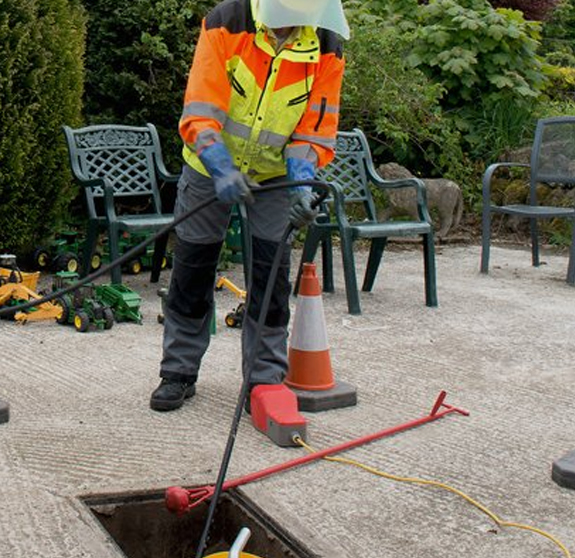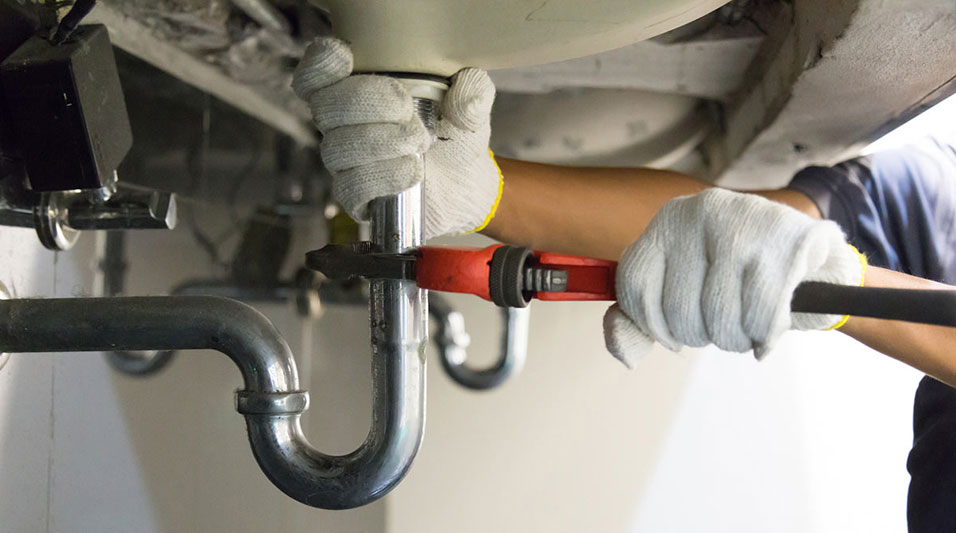Approaches to Address a Blocked Drain Before Calling in Plumbing Professionals
Approaches to Address a Blocked Drain Before Calling in Plumbing Professionals
Blog Article
Just how do you feel on the subject of What I learned from trying to deal with a clogged drain?

Intro
Managing an obstructed drain can be a discouraging experience, disrupting day-to-day tasks and possibly causing damages to your building. Nevertheless, before connecting to plumbing professionals, there are steps you can take to address the issue on your own. In this guide, we'll explore do it yourself remedies and safety nets to deal with a blocked drainpipe successfully.
Recognizing the Problem
The initial step in addressing an obstructed drain is recognizing the indications. Slow-moving drainage, gurgling noises, foul odors rising from drains, or water backing up prevail signs of an obstructed drain. Recognizing these indications early can aid avoid further problems.
Usual Root Causes Of Blocked Drains
Understanding the variables that contribute to drain pipes blockages is essential for efficient resolution. Typical wrongdoers consist of hair, soap residue, grease, food particles, and foreign objects like sanitary products or paper towels. Tree origins attacking below ground pipelines can likewise cause considerable blockages.
Do it yourself Solutions
For small blockages, numerous do it yourself services can be reliable. Pouring boiling water down the drain can assist liquify oil and debris. Baking soda and vinegar or a combination of salt and cooking soda can serve as natural cleansers. Making use of a bettor or pipes serpent to displace blockages is an additional option.
Devices and Tools
Having the right devices handy can make DIY drain cleaning up a lot more reliable. A plunger is a flexible tool for clearing obstructions in sinks, bathrooms, and showers. A plumbing serpent or auger can reach much deeper obstructions, while drain cleansing chemicals can be utilized carefully for persistent obstructions.
Preventive Measures
To stay clear of future blockages, taking on safety nets is vital. Set up drain guards or strainers to catch hair and debris prior to they enter the pipes. Routinely flush drains pipes with warm water to dissolve oil accumulation, and avoid dealing with oil or solid waste down the drain.
When to Call a Specialist
While DIY remedies can solve small obstructions, particular signs suggest the demand for professional help. Persistent clogs, foul odors despite cleaning up initiatives, or numerous drains backing up concurrently are warnings that call for experienced treatment.
Choosing the Right Plumbing Service
When selecting a plumbing solution, consider aspects such as experience, licensing, and client reviews. Select a credible plumbing technician with a performance history of high quality craftsmanship and clear pricing practices.
Price Considerations
The price of professional drain cleaning services can vary depending on the extent of the clog and the plumbing technician's rates. Request quotes from numerous carriers and ask about any type of added fees to ensure openness and stay clear of shocks.
Safety and security Precautions
When trying do it yourself drain cleaning, prioritize safety. Use protective gloves and glasses to avoid contact with dangerous chemicals or bacteria. Never mix various drainpipe cleaning items, as this can produce hazardous fumes.
Case Researches
Real-life instances show the effectiveness of do it yourself remedies and the relevance of prompt expert intervention in settling drainpipe blockages.
Verdict
By complying with the suggestions detailed in this guide, you can properly deal with obstructed drains and protect against future plumbing concerns. Whether opting for DIY options or seeking professional support, prompt activity is crucial to preserving a healthy pipes system and preserving the integrity of your home.
10 TIPS TO CLEAR ANY BLOCKED DRAIN
SIGNS OF A BLOCKED DRAIN
Blocked drains can be a source of property damage and health problems for people and pets. The early warning signs of a blocked drain are:
Overflowing
You’re probably quite used to everything flowing down your drain. As a result, it’s quite alarming seeing water spill back up. If your drain is overflowing, that means you’re facing a blockage.
Gurgling sounds
Gurgling sounds indicate that the water is pooling and pushing against the pipe. If you experience this, it’s often the case that a blockage is a problem.
Slow draining
When emptying your sink or taking a shower, you might notice that the water pools for longer than expected. Usually, the problem worsens rather than getting better by itself, which suggests that the blockage is growing larger.
CAUSES OF A BLOCKED DRAIN
Although most people use their drains appropriately, it’s quite easy to make mistakes. Occasionally, everyday use results in blocked drains too. Common causes include:
Tree roots
Tree roots won’t be the cause of local drain blockages, but they can disrupt your main sewage system. The root keeps growing until it breaches the pipe and causes a blockage.
Toiletries
Although toiletries are essential, some can cause drain blockages. For example, nappies, baby wipes and sanitary products should not be flushed down the toilet.
Foreign objects
When you have kids, there’s always a risk they’ll flush something unusual down the toilet. Toys and other foreign objects become lodged in the u-bend, resulting in a blockage.
Mineral Buildup
When minerals such as calcium build up in your pipes, this causes constriction. Although this may not cause a blockage on its own, it does make it easier for other types of blockages to form.
Soap
Although liquid soap may not cause drain blockages, solid soap bars can get lodged within pipes until they eventually break down. One way to stop this from happening is to use a mesh wire guard to cover plug holes.
Natural Debris
Natural debris can fall into your outdoor drains, especially when you don’t use gutter guards. This usually means leaves and twigs, although it can include dirt and grit too.
HOW TO CLEAR A BLOCKED DRAIN
Boiling water
Boiling water is useful for tackling blocked drains caused by grease, conditioner, and some other kinds of toiletries. This is because these substances have a low melting point, and the extreme heat helps to break them up. Boil a kettle with water and pour it down the drain to shift the blockage.
Natural cleaners
You can use some natural cleaners to create a fizzing effect that breaks drain blockages apart. Try pouring hot water down the drain, then follow it with one cup of bicarbonate of soda and a cup of vinegar. Leave it for ten minutes, then chase it with more hot water. A combination of the hot water and the natural cleaner mixture can break blockages up.
Caustic cleaners
Some stores sell caustic cleaners that take stronger action against drain blockages. It dissolves grease, fat, and oils, making it ideal for tougher blockages. Always follow the instructions on the packaging and ventilate the room before starting.
Plungers
As a simple yet effective tool, plungers can help to dislodge local blockages. They work by forming a seal around the plug hole, followed by a vacuum effect that removes the blockage.
DIY drain snake
You can make a DIY drain snake out of any thin metal wire, such as a coat hanger. Leave a hook at the end of the snake and insert it into the plughole. Try using it to fish out local blockages made of hair. This approach is most effective in showers.
https://preciseservices.com.au/10-tips-to-clear-any-blocked-drain/

As a keen reader on How to handle a clogged drain in your home, I figured sharing that piece of content was important. Sharing is caring. You just don't know, you might be helping someone out. I cherish reading our article about Some easy tips to fix blocked drains.
Call Report this page